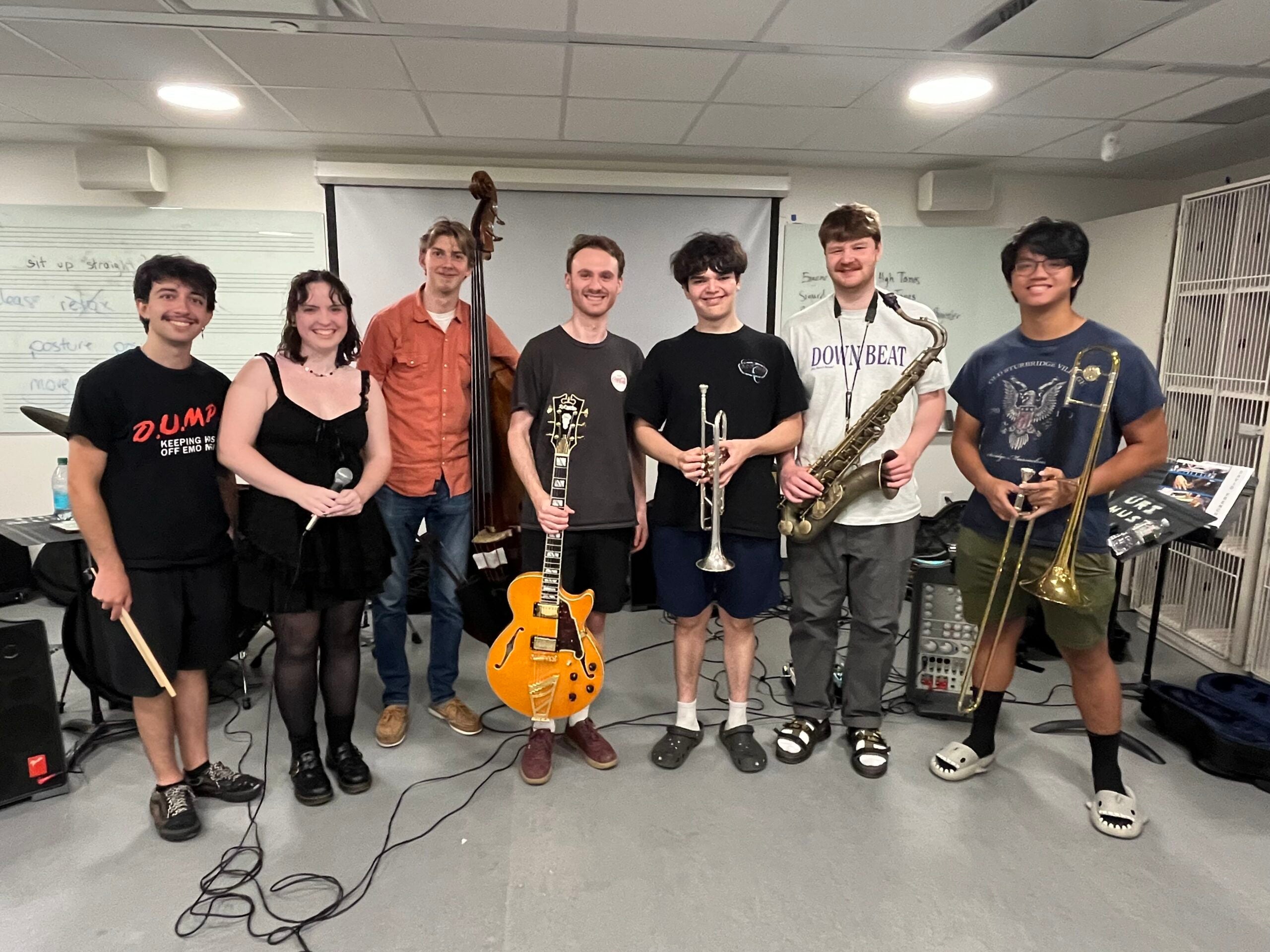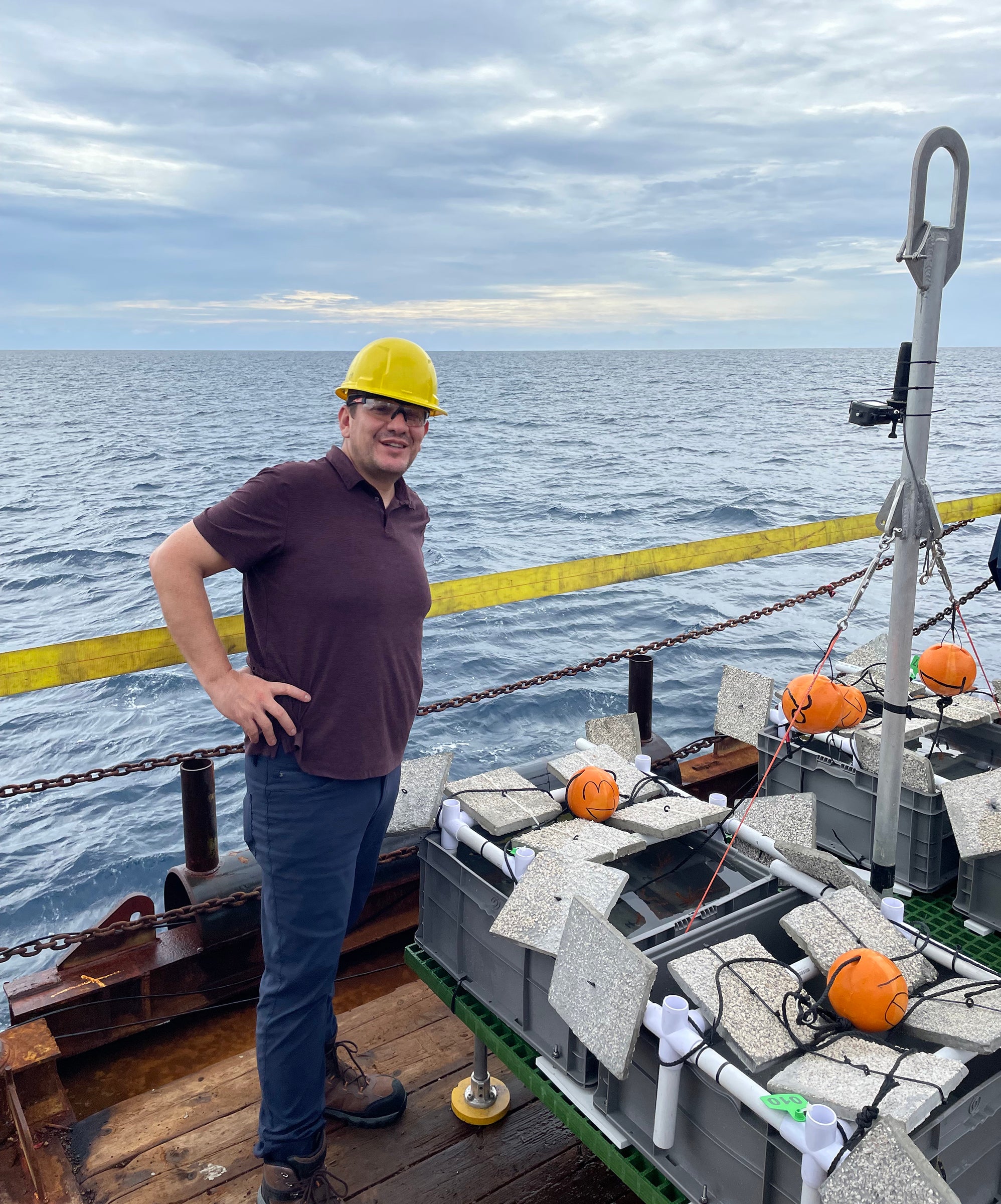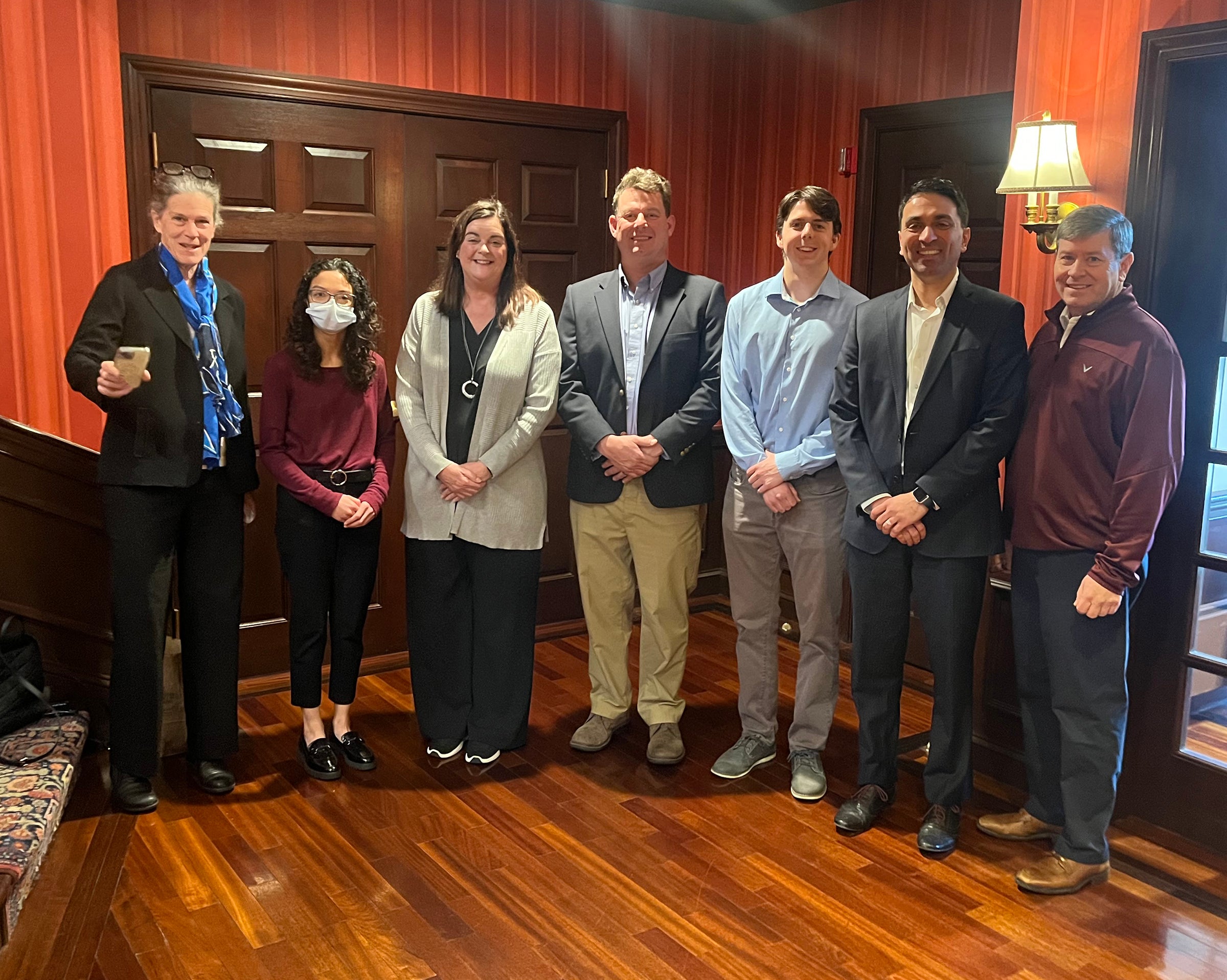URI taking part in international research to measure hydrogen emissions
KINGSTON, R.I. – June 4, 2025 – A new international research initiative will measure hydrogen emissions from operating infrastructure in North America and Europe, filling a gap in empirical data. With commercial hydrogen operations poised for global expansion, the new information will help producers, regulators, investors, and others understand potential emission sources and how to address them.

Researchers from the University of Rhode Island are partnering with a team including global industry leaders Air Products, Air Liquide, Shell, and TotalEnergies; global not-for-profit Environmental Defense Fund (EDF); academic scientists from Utrecht University, West Virginia University, and Cornell University; and applied research and technology development firms Aerodyne Research, TNO, and Transport Energy Strategies.
“There has never before been a comprehensive study of hydrogen emissions across the entire supply chain,” said Anthony Marchese, dean of URI’s College of Engineering and the URI research team leader. “An essential component of our study is having industry partners on board who provide the site access and facility operating data necessary to interpret the results. Development of the new hydrogen sensor by Aerodyne will enable us to capture facility-level hydrogen emissions using tracer-release methodology, which will help us determine accurate emission rates.”
Marchese was recently selected as lead author for a chapter on hydrogen emissions for the United Nations Intergovernmental Panel on Climate Change Methodology Report on Short-lived Climate Forcers. In the decade prior to joining URI, most of Marchese’s research focused on methane emissions. From 2013 to 2016, he led a comprehensive, national study on methane emissions from the gathering and processing sectors of the U.S. natural gas supply chain organized by EDF. In April 2016, the EPA Greenhouse Gas Inventory was updated based directly on the results of this research.
Similarly, this new study seeks to quantify hydrogen emission rates from facilities in the hydrogen value chain, including steam methane reformers, pipelines and compressors, liquefaction facilities, oil refineries, fueling stations, hydrogen-powered vehicles, and other hydrogen infrastructure.
Researchers are using the first commercial high-precision, fast hydrogen analyzers and mobile/portable sensing platforms to detect and characterize site-level and component-level hydrogen emissions with accuracy and speed not seen before.
Hydrogen, which today is used primarily for refining and chemical production, has seen significant momentum in recent years with potential new applications linked to the energy transition and decarbonization. Over 60 countries have adopted national hydrogen strategies, according to the International Energy Agency, with targets and substantial investments being made to scale up production and develop supporting infrastructure.
While hydrogen holds important potential to contribute to deep decarbonization – particularly in sectors that are difficult to electrify, including heavy industry and long-distance transport – it presents its own emissions challenges that need to be understood and carefully managed to optimize this potential. Studies indicate that hydrogen released into the atmosphere indirectly causes warming through chemical reactions, which can reduce the intended climate benefits of hydrogen deployment if not addressed. Accurate emissions data can better inform sound policies and practices to prevent leaks and other emissions from both existing and emerging hydrogen systems.
“This study will, for the first time, bring together academia and industry in a collaborative effort to directly measure hydrogen emissions from a range of operational facilities. As hydrogen becomes an increasingly important part of the energy system, developing a robust, data-driven understanding of its emissions is essential to supporting informed decisions and guiding future investments in the sector,” said Steven Hamburg, chief scientist and senior vice president of Environmental Defense Fund.
In support of advancing the science related to hydrogen emissions, the four industry partners are providing access to their facilities for university researchers to gather data. They will also provide operational context to derive high-quality insights from the data. All study participants share in the objectives of representative data and scientifically rigorous interpretation of results.
The first phase of the work at URI was to develop a comprehensive U.S. inventory of hydrogen emissions. The second phase, which began in December 2024, focuses on conducting measurements of facility-level hydrogen emissions from hydrogen production facilities.
URI researchers Jesse Duroha and Niklas Lariviere have been conducting field studies. Lariviere, of Frankfurt, Germany, studied mechanical and process engineering at Technische Universität Darmstadt and is currently participating in the dual-degree program between TUD and URI for his master’s degree. Duroha, of Lagos, Nigeria, is a postdoctoral fellow who recently submitted a journal article on the hydrogen emissions inventory developed at URI. This past April, the first stage of the field campaign was completed with facility-level hydrogen emissions measurements conducted at approximately 10 hydrogen production and transfer facilities in Louisiana and Texas. Field measurements for the study will continue through early 2026.
Data will be aggregated, anonymized, published in peer-reviewed journals, and made publicly available.
The study is fully funded by philanthropic contributions to Environmental Defense Fund.
Latest All News
- John Olerio named to Providence Business News 40 Under Forty listKINGSTON, R.I. – July 31, 2025 – University of Rhode Island Executive Director of Strategic Initiatives John Olerio M.B.A. ’11, Ph.D. ’20 has been recognized with a PBN 40 Under Forty Award by Providence Business News. The annual award recognizes individuals under the age of 40 who have excelled in their profession and are involved […]
- Core matters: URI geoscientist weighs in on critical mineralsKINGSTON, R.I. – July 31, 2025 – Critical minerals are a hot topic in the news these days, whether as a point of contention between countries or in discussions of supply and demand. Critical minerals are nonfuel minerals/metals necessary to industry and are essential in a wide range of technologies. Their availability is sensitive to […]
- URI jazz students to return to Newport Jazz Festival for third yearKINGSTON, R.I. – July 31, 2025 – University of Rhode Island music students will again take the stage at the legendary Newport Jazz Festival. Playing a half-hour set that tips the hat to the festival’s vast history, the seven URI students will perform Sunday, Aug. 3, at about 2:45 p.m. on the Foundation Stage at […]
- Caribbean coral reefs’ chronic decline could get a boost from proactive assisted gene flow — if allowedKINGSTON, R.I. – July 30, 2025 – Coral reefs are under threat from warming oceans and prolonged heat — but regulatory inaction also poses a risk. However, marine biologists say that new approaches in the region could help prevent species loss and retain ecosystem function, if they get the permission to proceed. One approach that […]
- Navigating health careIf you’ve had to find a primary-care provider or pay a medical bill lately, you know that accessing and paying for health care can be difficult. But why? How can we get the care we need?
- URI Consulting Club helps Providence Mutual combat carbon emissions levelsKINGSTON, R.I. – July 29, 2025 – The University of Rhode Island continues to leave an indelible mark on its students—an influence that extends well beyond the Kingston Campus to prominent businesses such as Providence Mutual Fire Insurance Company. For Providence Mutual, that impact will be lasting, thanks to the work done by the URI […]













